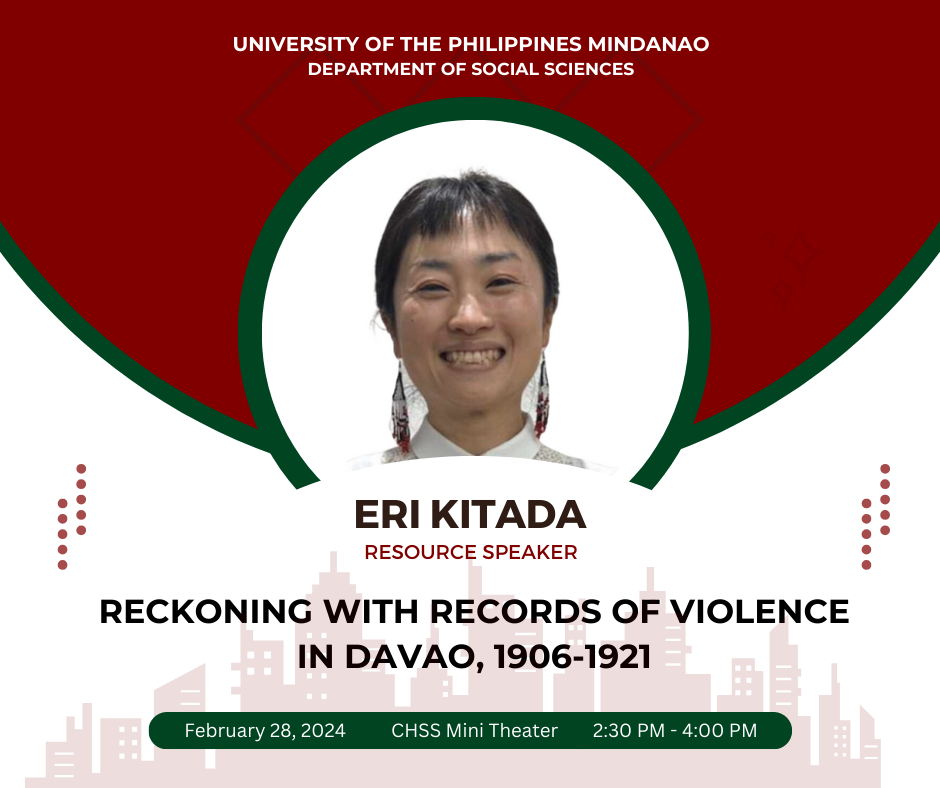"Reckoning with records of violence in Davao, 1906-1921"
 |
| Eri Kitada is a historian based in Tokyo, Japan. |
UP Mindanao's Department of Social Sciences organized the talk "Reckoning with records of violence in Davao, 1906-1921," given by Eri Kitada on February 28, 2024, at the UP Mindanao College of Humanities and Social Sciences.
The talk was based on her monograph titled "Intimately Intertwined: Settler and Indigenous Communities, Filipino Women, and U.S.-Japanese Imperial Formations in the Philippines, 1903-1956," which uncovers the little-known history and legacy of Japanese settlements in the U.S. colonial Philippines.
Eri Kitada analyzed the records scattered in U.S. colonial reports, Japanese consulate reports, and the popular press of violent incidents in early twentieth-century Davao Province, Mindanao. It focused on incidents committed by so-called non-Christian men against Japanese settlers.
Eri Kitada's presentation raised the question of why some incidents were documented in archives as "crimes" while other incidents were not. In addition, the presentation reported how the violent incidents occurred and how these incidents shaped the U.S.-Japanese colonial project in Davao.
The reportage of confrontations and violence among diverse residents—non-Christian Filipinos and Americans, Japanese, Chinese, and Christian Filipino settlers—changed over time in relation to the shifting attitudes of the U.S. colonial government towards Japanese settlers.
Dr.Kitada's study illuminates the multiple relationships in Davao and portrays a labor history of non-Christian Filipinos. In so doing, this study offers alternative ways to understanding the concepts of "Juramentado," "amuk," "mutiny," and other colonial uprisings in the history of colonialism.
Eri Kitada is a historian based in Tokyo, Japan, who studies race, gender, sexuality, and modern colonialism in the US and the Asia-Pacific region. Eri Kitada earned a doctoral degree at the Department of History of Rutgers University-New Brunswick, USA.
The talk addresses the Sustainable Development Goals of quality education, gender equality, and justice.
